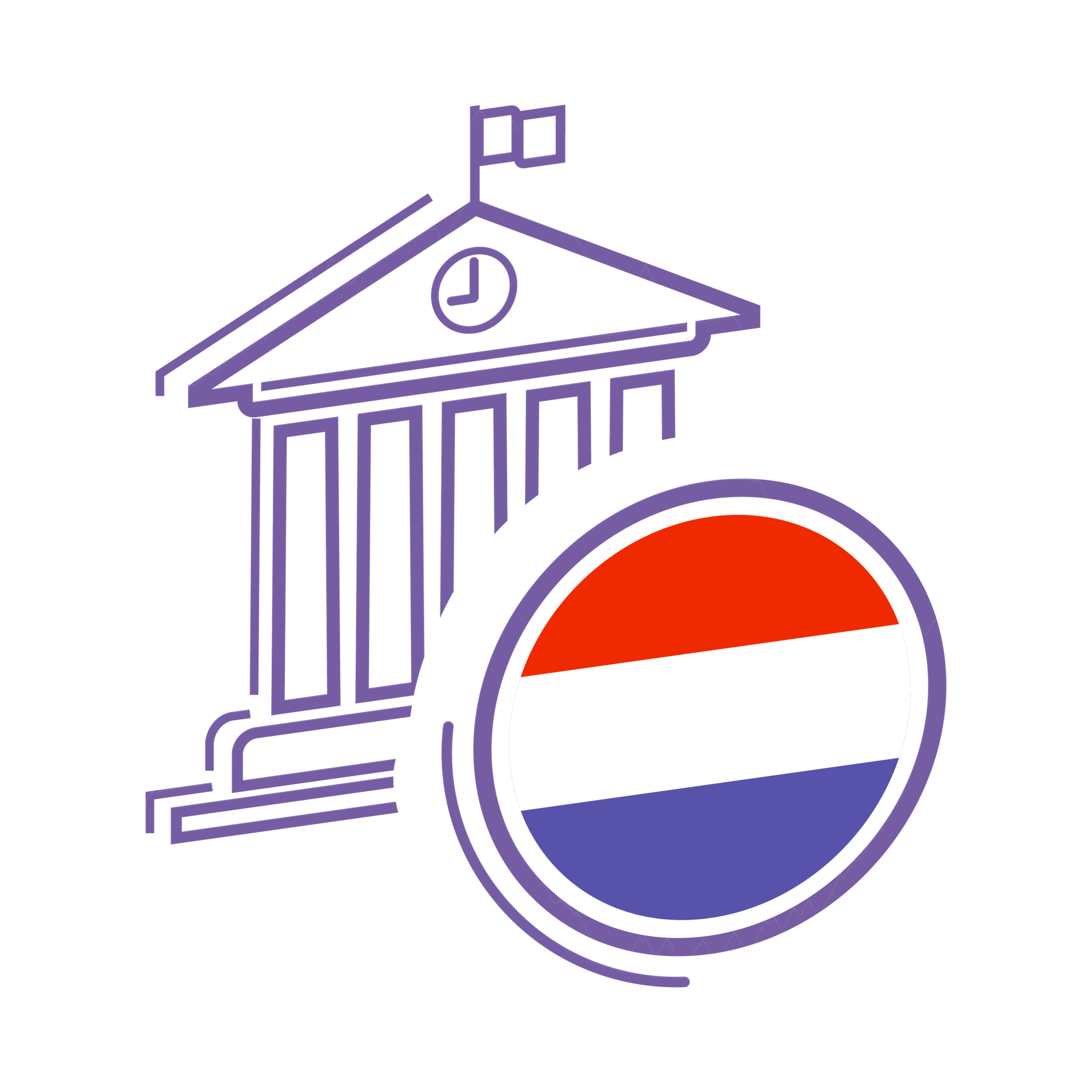Studia w Holandii
The Netherlands has been attracting thousands of students from around the world for years – and in the 2024–2025 academic year alone, there were over 50,000 new international students. With more than 2,100 degree programs taught in English, the Netherlands has become one of the most popular destinations for those planning to study abroad – both at the bachelor’s and master’s level.


High level of education
Dutch universities are regularly ranked highly in global rankings. These institutions place strong emphasis on independence, analytical thinking, and solving real-world problems – programs are often project-based, team-oriented, and closely linked to professional practice. As a result, graduates are very well prepared for careers both in academia and in business.
Study programs in English starting already at the undergraduate level
To begin studying in a large number of programs available in the Netherlands, there is no need to know Dutch. This applies to both master’s and bachelor’s programs, which sets the country apart from many other European alternatives.


Excellent infrastructure and student support
The campuses of Dutch universities are modern, well-equipped, and student-friendly. They provide access to libraries, laboratories, collaborative workspaces, and cafeterias. In addition, there are numerous student organizations and support offices (student services) that assist with housing, integration, and administrative matters. Such infrastructure and support greatly facilitate adaptation to a new academic and living environment.
International environment
In many programs, international students make up even half of the entire group, creating a unique cultural environment and openness to diversity. This phenomenon makes it easier to build relationships with people from all over the world and to develop intercultural skills, which are highly valued by employers today. Such an environment also fosters a better understanding of global perspectives and the building of networks that can prove valuable in the future.


Exchange programs and internships
Students can take advantage of numerous exchange programs (e.g., Erasmus+), and many degree programs include mandatory or optional internships. Such a structure allows students to gain international experience during their studies and increase their chances on the job market after graduation. Dutch universities often collaborate with renowned companies and institutions, which further enhances the quality of the internships offered.
Is it worth studying in the Netherlands
Types of Universities in the Netherlands
The Dutch higher education system includes several types of institutions that differ in their approach to teaching, study programs, and the scope of research and practical activities. Understanding this division makes it easier to better match the choice of program and university to individual needs and career goals. Among Dutch universities we can distinguish
- Research Universities
- Universities of Applied Sciences (similar to vocational higher education institutions in Poland)
- Institutes for International Education (centers for international education, often part of other universities)
- University colleges (separate schools within top universities)
Research universities
The most attention is deserved by research universities and university colleges. The former are academic institutions that focus on scientific research and a theoretical approach. They offer bachelor’s programs (usually 3 years), master’s programs (2 years), and doctoral programs.
Studies at these institutions require greater independence and are aimed at developing analytical skills and critical thinking. They are ideal for those planning a scientific or academic career, or work in specialized fields.
Examples of the most popular universities chosen by our students include: TU Delft, University of Amsterdam, Leiden University, University of Groningen, Erasmus University Rotterdam, Maastricht University, and TU Eindhoven.
University colleges
University colleges were established in the Netherlands as early as 1998, partly inspired by institutions such as Oxford and Cambridge. They offer teaching within the framework of Liberal Arts and Sciences programs, which are interdisciplinary studies that allow students to structure their studies according to their own preferences. These institutions usually provide a more individualized approach and better support, but this comes with higher tuition fees.
What does the application process look like?
Applications for studies are submitted centrally through the Studielink system. Each student can initially choose four programs, of which only two may be of the numerus fixus type (programs with a limited number of places). These typically include, among others, engineering programs at top technical universities (TU Delft and TU Eindhoven), psychology, or artificial intelligence. Applications for numerus fixus programs usually close on January 15 of the year in which candidates wish to start their studies.
After the initial registration in the main Studielink system, universities carry out their own internal admission processes, which may vary depending on the institution. Applying for many numerus fixus programs requires taking entrance tests, for which our tutors help students prepare. Universities, wishing to get to know candidates, often expect application attachments such as motivation letters, academic CVs, short answer questions, or portfolios, depending on the program.
Many universities (most often for programs not classified as numerus fixus) also conduct so-called matching, a process aimed at ensuring that the chosen program is suitable for the candidate. It takes place before the official start of studies and helps universities minimize the number of students dropping out. It usually involves small tasks closely related to the chosen field of study, to give candidates a sense of the material they will be covering.
Regardless of the chosen program and university, it is worth starting the application process early and not leaving the preparation of documents to the last moment. This way, we avoid unnecessary stress and increase the chances that our application will be perfectly completed.
Costs of studying and living in the Netherlands – what is worth knowing?
Studying in the Netherlands is an attractive option not only because of the high level of education and the wide range of English-taught programs but also due to the relatively low tuition fees for citizens of the European Union. Nevertheless, it is worth preparing in advance for all the associated costs – from tuition fees to daily living expenses.
For EU citizens, including Poland, the base tuition fee at public universities for the academic year 2025/2026 is €2,530 per year. This applies to most standard bachelor’s and master’s programs offered by public universities (research universities). University colleges, however, cost more, usually ranging from €4,500 to €6,000 per year.
The living costs for a student in the Netherlands depend on location, housing standards, and lifestyle. On average, however, housing costs range from €400 to €800 per month, food and groceries around €150–250, and transport €40–100. Universities often also recommend that students purchase private health and liability insurance.
Dutch universities frequently offer attractive scholarships, especially to applicants for master’s programs. After meeting certain requirements, it is also possible to obtain non-repayable grants or loans, which make it easier to live in the Netherlands.
Applying to study in the Netherlands with Tuteer
Our consultants are people who themselves graduated from top Dutch universities and have long-standing experience in educational consulting. Our CEO – Szymon Kasprzyk – graduated from TU Delft in Mechanical Engineering and received the prestigious Excellence Scholarship in 2018.
At Tuteer we provide comprehensive support throughout the application process – from choosing a program, registering in Studielink, preparing application documents, and filling in university systems, to final preparations for departure. We know all the details of the process and will help you avoid mistakes that could cost you your dream place at university. We also support future students in applying for grants and scholarships and share insights into what studying at specific universities is really like.
Contact us via the contact form (link here), call, or send an email today and book a free consultation regarding studies in the Netherlands.